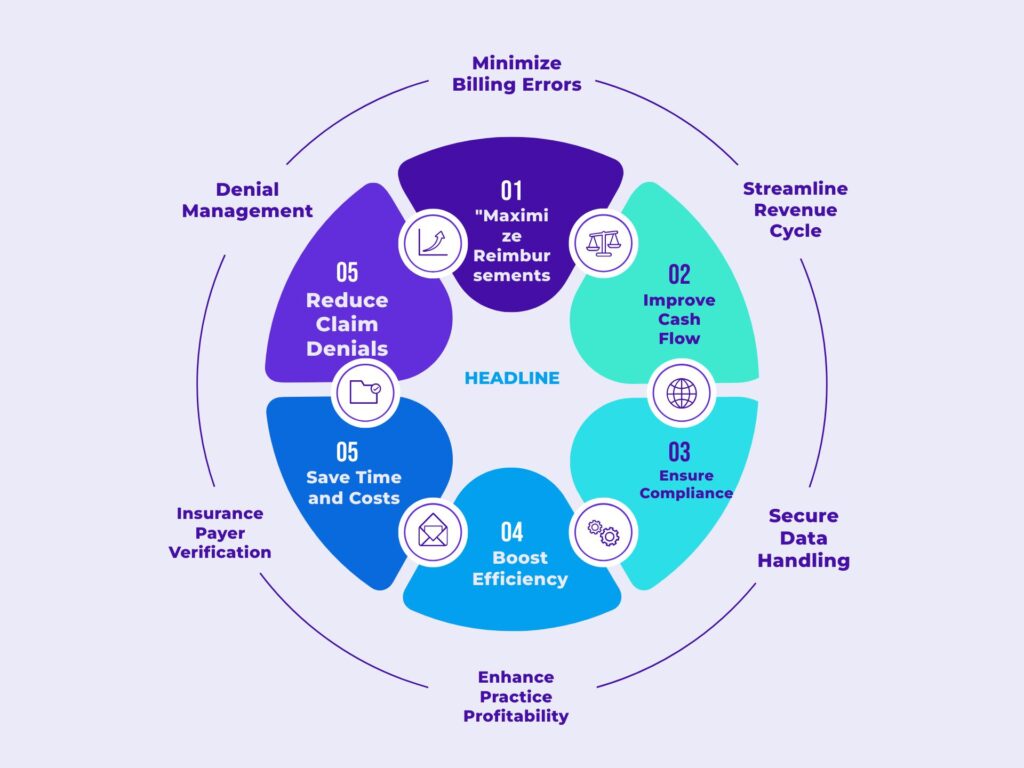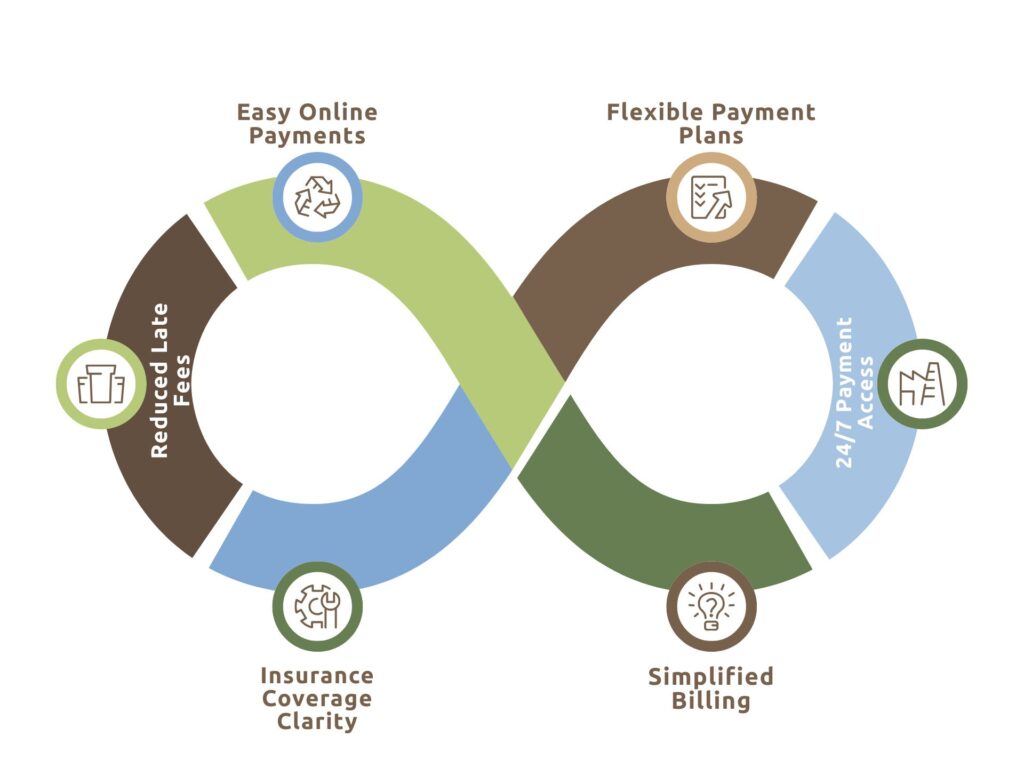Introduction
Medical billing is a complex and detailed process that involves multiple components to ensure accurate reimbursement. Among the most essential tools in billing, particularly for speech-language pathology services, are Speech Therapy Modifiers. These modifiers are critical in conveying specific information about provided services to payers such as Medicare, Medicaid, and private insurers. Understanding and appropriately using these modifiers is essential to avoid claim denials, maximize reimbursement, and ensure compliance with billing regulations.
What Are Speech Therapy Modifiers?
Speech Therapy Modifiers are two-character alphanumeric codes appended to CPT (Current Procedural Terminology) or HCPCS (Healthcare Common Procedure Coding System) codes. They provide additional information about the performed service without changing the code’s original meaning. These modifiers clarify elements like whether a service was part of a therapy plan of care, provided by an assistant, or done under special circumstances.
In speech therapy, the use of these modifiers ensures that claims reflect the exact nature of the service. They can indicate medical necessity, provider qualifications, the service location, or if the treatment was part of a therapy cap exception. Each modifier tells a story that helps payers understand the context of the claim, which is vital for smooth and correct reimbursement.
Importance of Modifiers in Speech Therapy Billing
The role of Speech Therapy Modifiers in medical billing is significant. Misuse or omission of these modifiers can result in payment delays, claim rejections, or audits. Accurate modifier usage supports the credibility of the provider and protects against compliance issues.
Modifiers are often used to:
- Differentiate between services rendered on the same day
- Identify when therapy services exceed the annual cap but are medically necessary
- Specify the involvement of therapy assistants
- Confirm that services were part of an established plan of care
These clarifications allow insurance companies to process claims more efficiently and minimize administrative back-and-forth.
Accurate medical billing ensures healthcare providers receive proper reimbursement.
Commonly Used Speech Therapy Modifiers
While there are several modifiers that may apply in different scenarios, some are more frequently used in speech-language pathology. Below is a breakdown of commonly used Speech Therapy Modifiers and their purpose:
| Modifier Code | Description |
|---|---|
| GN | Services under speech plan |
| KX | Therapy cap exception |
| GO | Occupational therapy plan |
| GP | Physical therapy plan |
| CQ | Service by therapy assistant |
| 59 | Distinct procedural service |
These modifiers help distinguish the services’ nature and ensure that they are billed accurately. For example, the GN modifier is vital for identifying services under a speech-language pathology plan of care, while the KX modifier indicates that a service exceeds the therapy cap but is medically necessary.
Guidelines for Applying Modifiers
Proper application of Speech Therapy Modifiers follows strict documentation and clinical justification. Here’s how to apply them effectively:
1. Align with the Plan of Care
Any therapy service billed with modifiers like GN should align with the documented plan of care established by the speech-language pathologist. The provider must maintain records that show the service was part of an approved therapy regimen.
2. Justify Medical Necessity
Using the KX modifier requires that services are still medically necessary even after reaching the therapy cap. Supporting documentation should include progress reports, physician orders, and detailed clinical notes.
3. Confirm Provider Qualifications
Modifiers like CQ are used when therapy assistants provide services under supervision. Billing professionals must verify that services meet state and federal regulations for supervision and delivery by assistants.

4. Indicate Distinct Services
The 59 modifier is applied when two distinct procedures are performed on the same day. However, misuse of this modifier is a red flag for auditors. It should be used sparingly and only when clearly supported by documentation.
Impact of Incorrect Modifier Use
Incorrect or missing Speech Therapy Modifiers can have serious consequences. Some of the most common issues include:
- Claim denials: If the modifier is inappropriate or missing, insurers may reject the claim outright.
- Payment delays: Inadequate documentation or modifier misuse can lead to requests for additional information.
- Audit triggers: Overuse or incorrect use of certain modifiers like 59 can lead to an audit by insurance payers.
- Legal and financial penalties: Repeated errors may result in fines or repayments.
To avoid these issues, speech therapy providers should invest in regular training for billing staff and ensure that EMR systems are updated to support correct modifier assignment.
Medicare and Speech Therapy Modifiers
Medicare is one of the primary payers requiring strict compliance with Speech Therapy Modifiers. For Medicare billing, use of the GN modifier is mandatory to indicate that the service is part of a speech therapy plan of care. In cases where the therapy cap is exceeded, providers must append the KX modifier along with appropriate documentation to justify continued services.
It’s important to note that Medicare monitors the usage of therapy assistants closely. When a speech-language pathology assistant provides services, the CQ modifier must be used, and services must meet supervision standards set by CMS (Centers for Medicare and Medicaid Services).
Speech Therapy Modifiers vs. Other Therapy Modifiers
Though similar in function, Speech Therapy Modifiers differ from those used in occupational or physical therapy. For example:
- GN indicates speech-language services
- GO indicates occupational therapy services
- GP indicates physical therapy services
Using the wrong modifier can lead to confusion and rejected claims. Each therapy type requires its own distinct modifier, reinforcing the importance of accuracy and attention to detail in coding.
Best Practices for Using Speech Therapy Modifiers
Here are several best practices that billing professionals should follow when dealing with Speech Therapy Modifiers:
How to Use Modifiers for Medical Billing Correctly in 2025
Stay Updated on Payer Requirements
Different payers may have varying rules on modifier use. Always refer to each payer’s specific billing guidelines to ensure compliance.
Perform Regular Documentation Audits
Internal audits can help identify gaps in documentation and modifier usage. Consistent reviews prevent ongoing errors and enhance overall billing accuracy.
Train Billing and Clinical Staff
Ensure that both the clinical team and billing staff understand the importance and correct usage of modifiers. Training should cover common pitfalls and include updates on coding changes.
Leverage Technology
Use billing software that can automatically flag missing or inappropriate modifiers based on the CPT code entered. Technology can be a strong ally in maintaining compliance and reducing manual errors.

Challenges in Speech Therapy Modifier Use
Despite their importance, using Speech Therapy Modifiers correctly can be challenging. Providers often struggle with:
- Understanding when multiple modifiers are needed
- Keeping up with frequent regulatory changes
- Communicating effectively between clinical and billing teams
- Managing services across different settings (e.g., school vs. outpatient)
These challenges highlight the need for cohesive communication and up-to-date resources.
Conclusion
In the world of medical billing, Speech Therapy Modifiers play a pivotal role in the accurate processing of claims and in ensuring that speech-language pathology services are properly reimbursed. From documenting plan of care alignment to justifying medical necessity, modifiers like GN, KX, and CQ act as crucial indicators for payers. Accurate and informed use of these modifiers not only ensures compliance but also optimizes revenue and reduces the risk of audits and denials.
As regulations evolve, it’s essential for providers and billing professionals to stay educated on the latest modifier guidelines. When used properly, Speech Therapy Modifiers support clear communication between healthcare providers and payers, facilitating smooth operations in the revenue cycle.
FAQs
When should the KX modifier be used in speech therapy billing?
The KX modifier is applied when services exceed the annual therapy threshold or cap but are still considered medically necessary. Providers must ensure proper documentation justifies the continued treatment.
What does the CQ modifier mean in speech therapy claims?
The CQ modifier is used when speech therapy services are provided in part or in whole by a therapy assistant. It signifies that an assistant performed the treatment under the appropriate level of supervision.
Can I use multiple Speech Therapy Modifiers on the same claim?
Yes, multiple modifiers can be used on the same claim if they are relevant and supported by documentation. For example, a service may require both GN and KX modifiers if it’s part of a speech plan and exceeds the therapy cap.

